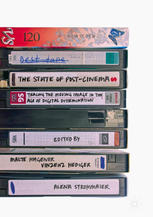

Most ebook files are in PDF format, so you can easily read them using various software such as Foxit Reader or directly on the Google Chrome browser.
Some ebook files are released by publishers in other formats such as .awz, .mobi, .epub, .fb2, etc. You may need to install specific software to read these formats on mobile/PC, such as Calibre.
Please read the tutorial at this link: https://ebookbell.com/faq
We offer FREE conversion to the popular formats you request; however, this may take some time. Therefore, right after payment, please email us, and we will try to provide the service as quickly as possible.
For some exceptional file formats or broken links (if any), please refrain from opening any disputes. Instead, email us first, and we will try to assist within a maximum of 6 hours.
EbookBell Team

0.0
0 reviewsThis book approaches the topic of the state of post-cinema from a new direction. The authors explore how film has left the cinema as a fixed site and institution and now appears ubiquitous - in the museum and on the street, on planes and cars and new digital communication platforms of various kinds. The authors investigate how film has become more than cinema, no longer a medium that is based on the photochemical recording and replay of movement. Most often, the state of post-cinema is conceptualized from the "high end" of the most advanced technology; discussions focus on performance capture and digital 3-D, 4-K projection and industrial light & magic. Here, the authors' approach is focused on the "low-end" circulation of filmic images. This includes informal networks of exchange and transaction, such as p2p-networks, video platforms and so called “piracy” with a special focus on the Middle East and North Africa, where political and social transformations make new forms of circulation and presentation particularly visible.